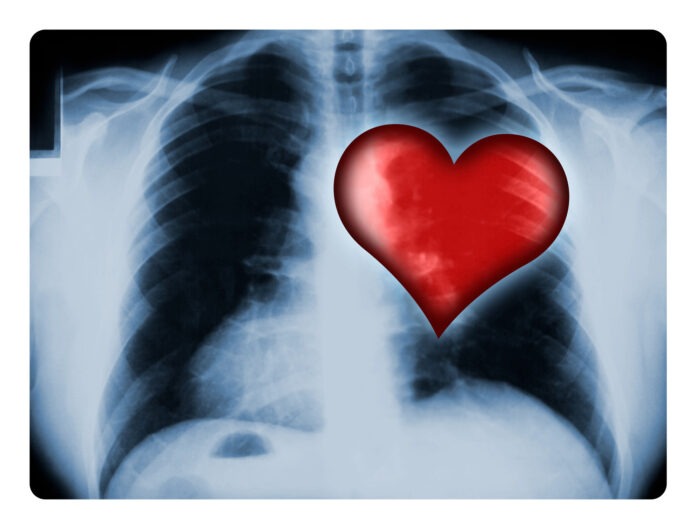Listen to Your Heart
Ever notice how we don’t pay attention to something until it breaks? Your heart is something that you may not think about – until it stops working the way it should. Unless you feel your heart start to race or feel it pounding in your chest, you may not pay any attention to it.
Thanks to the observation of National Heart Month and Valentine’s Day in February, the heart may finally get the recognition it deserves – at least this month. But your heart works for you every month, every day, and every minute.
The heart is that fabulous organ that (thank heavens) never takes a vacation. Whether we are sleeping or awake, it continues to beat. According to the Texas Heart Institute, the heart pumps 2000 gallons of blood through the body each and every day. A normal rate for the heart (termed in beats per minute) will run from 40 to 100 BPM in an adult, with the average around 72 BPM. In other species, the heart rate is as low as 20 BPM in a codfish to 600 BPM in humming birds. The average human heart beats 2.5 billion times by the time we reach the age of 66.
Your heart is about twice the size of a clenched fist – about half that size in children. A diseased heart often weighs close to 2 pounds whereas a healthy heart is usually 9 to 12 ounces. Most people assume their heart is located on the left side of the chest but it’s actually more along the midline of the chest. The upper chambers of the heart are called atriums and are the receivers of blood. The right atrium gets the de-oxygenated blood from the body, pumps to the lower chamber (called the right ventricle) to the lungs in, and drops off carbon dioxide and picks up fresh oxygen. The newly oxygenated bloods travels back to the heart via the pulmonary vein (one of the only veins to carry oxygen rich blood) to the left atrium, then the left ventricle, and then back through the body.
The heart has an amazing nerve network that combines with special muscle cells that spread electrical signals in a precise manner. This causes the controlled, time sensitive contraction of the heart to pump blood simultaneously to the correct chambers, as well as to the lungs, and the rest of the body at the varied and correct pressures. What a sophisticated pump!
The heart is also a generator of electricity. An EKG or electrocardiogram records the firing pattern of different structures in the heart by picking up the electrical signals emanating from the heart. The heart generates 2.5 watts of power per beat that can be read up to 20 feet away from the person.
In traditional Chinese Medicine, the heart is referred to as the emperor of the body, the ruler of the five organ networks, and the root of life. The heart is considered the seat of the luminous heart of spirit, or shen. This elusive shen generates blood and qi, pronounced Chi. Qi refers to the natural energy of the body. Since shen controls all of our bodily functions and actions, this has been translated to mean that diseases of the structural heart are caused from unbalanced emotions, such as anxiety, depression, sadness, or obsessions. Therefore, the heart must stay on the proper path to lead the rest of the organs in health.
Another important concept from Chinese Medicine is that our heart’s health is reflected in our faces. When our face is bright and happy, so is our heart. When our face is ashen, our heart is heavy and unhealthy.
In addition to exercise, one of the best ways to take care of your heart is by getting good nutrition by eating a variety of real, preferably organic, foods. By eating real food, as opposed to processed, manufactured food, you stack the deck in your favor. Rather than consuming poisons and chemicals, you will be getting the nutrition your body needs to run and repair itself. Although most of your nutrition should come from eating these healthy foods, you may need a few specific whole food supplements to get some of the trace minerals and other components that may be missing. Your heart needs ample amounts of Vitamin C, Vitamin E, Vitamin B6, Vitamin B12, Selenium, and CoQ10, along with your Omega 3 fats.
Most people with heart disease, as well as those who may be headed toward heart disease, will need additional nutrition to help their body deal with their elevated Homocysteine levels. Homocysteine is produced from the incomplete breakdown of an essential amino acid. (Essential refers to the fact that we must consume the particular nutrient because our body cannot manufacturer it.) The incomplete breakdown is due to the lack of specific nutrients we would normally have in our systems if we had better nutrition. The fact that most people don’t eat what I call “real food” is one of the reasons heart disease has become so common. The specific nutrients that are needed include folic acid, betaine, di and tri-methyl glycine and molybdenum. Most traditional medical practitioners prescribe only folic acid, neglecting the rest of these nutrients. Elevated Homocysteine levels are found in almost all heart disease patients.
A properly functioning nerve supply is also essential for a healthy heart. Throughout the years, I’ve taken care of patients with both direct and indirect nerve interference whose hearts responded extremely well when nerve interference was corrected. If you think you have a heart problem, consider getting checked by both a conventional physician as well as a well-qualified alternative physician.
You may want to just be still and listen to your heart. The ancient book of definitions (Neijing) refers to the heart as the seat of consciousness and intelligence. Your heart will show you the way to health when you start listening. Just as there is much to learn from Chinese medicine, there are many ways to take care of your heart, starting with appreciation. Happy Heart Month!
Yours in Health,











